Quote of the Day: “Preservation of one’s own culture does not require contempt or disrespect for other cultures.”
Question of the Day: “How does culture shape daily life?”
Líders del Día – Vi and Jeremy
Straight from our Feroz breakfast (eggs, tomatoes, juice), the Glimpser group traveled to Tagma San Jose, a rural indigenous community outside of Guaranda, to take on a nature walk in an epically beautiful setting. Our anticipation for another great day offered us another opportunity to carry on a new tradition on the bus, which we are now referring to as the Guaranda TED Talks. It brought great debate and laughter as usual. Once we reached the destination, our guides, Carlos, his daughter and Rocio, led us down a hill on a dirt path covered in loose rocks and cow dung. The terrain caused some grumbling among the group – a natural response for visitors exploring a new place. However, the local community of Kichwas made it look so easy that it came to my attention that these people have walked these mountain paths for a very long time. Once I had this realization, I became much more observant about their actions and movements. The Kichwas seemed so content with their living conditions and surroundings. I saw little kids walking their alpaca and gently picking flowers along the side of the trail. They were completely unfazed by everything that made us tentative. Carlos explained to us that nature is considered a value above even people. It is not here for exploitation, and the “bad plants” that we think of are actually nothing more good plants being exploited. There are no bad plants; nature is nature. Later in the walk, we were introduced to their houses and gardens. To me, the houses didn’t look like they could provide enough shelter for a family. In spite of that, when they described the building process and their durability, they spoke with great pride. They were proud because their family came together to build the house and watched it provide for generations. It was then that I learned that economic wealth does not always relate to happiness (a theme of our bus TED Talk).
After visiting the Kichwas, we went back on our bus to go to a different destination. This next place was closer to the city (and closer to the idea of wealth). On the way there, we passed by some very nice houses. However, when I looked inside the windows of one house, I saw a boy holding an orange ball on top of his head, staring blankly out the door. He appeared to want to play outside, but since he was living so close to the busy streets, there were not many places he could freely play. At another house, even prettier than the other ones, an older lady caught my attention as she sat and stared into the mountains. By her expression, it seemed like she yearned for somewhere else. It reminded me of how happy the Kichwas were in their small hillside community and how willing they were to share what little they had. – Vi
_____
Already half-exhausted from the nature walk and third sunny day in a row, the Glimpsers moved on to a presentation of Carnaval at the Cacique Guaranga. Carnaval is a celebration that is extremely important to the locals of this city and area, and the seminar was set up to give us a “glimpse” into what this event is like each year. Gustavo, a nice man with a thick beard, gave us high fives as we walked into his auditorium, but of course, I messed it up and awkwardly waved at him instead. Nonetheless, he was nice enough to show us a powerpoint slideshow on this cultural event. It was a welcome surprise then to see that a band had been waiting for us outside with drinks, powder, and foam to show us a small Falso Carnaval! People started dancing, and the energy of the group soared. The locals looked at us strangely as we were essentially partying like it was New Year’s Eve in the middle of a June day. But it didn’t matter. Everyone was smiling and having fun.
Carnaval is important to Guaranda because it signals both freedom and community. Even those who have left Guaranda for economic or personal reasons come back every year to catch up with their families and neighbors and to take part in the community event that will hopefully always be running. Everyone gets a chance to let loose and come together. Even more, in this city, the celebration is open and welcome to all; there is no distinction between the rich or the poor or which side of the city you lived on. It made me think about our own communities in the United States. I personally don’t talk to my neighbors too much. I know there’s a nice man who gives my family bread on random occasions, but I’ve never really held a long conversation with him. Maybe once or twice I say hi and have small talk with him and the other people on my street. But the sense of community in Guaranda (as well as in the Indigenous village, and perhaps most of Ecuador) is much stronger. Here, it would be strange to not know the names of the people living 50 feet away, and certainly not out of the question to open their doors to all the locals and foreigners who show up for Carnaval each March. – Jeremy
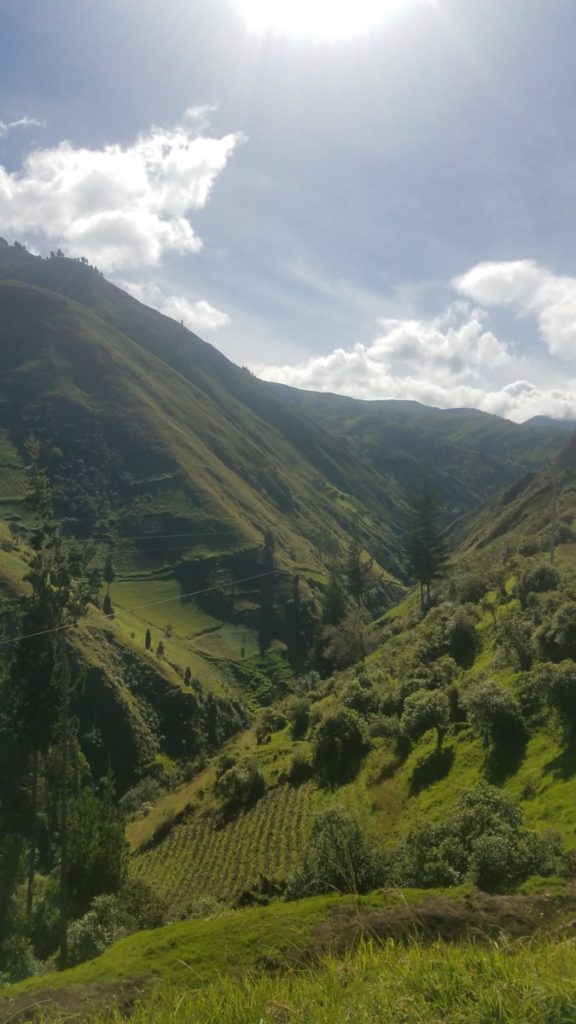
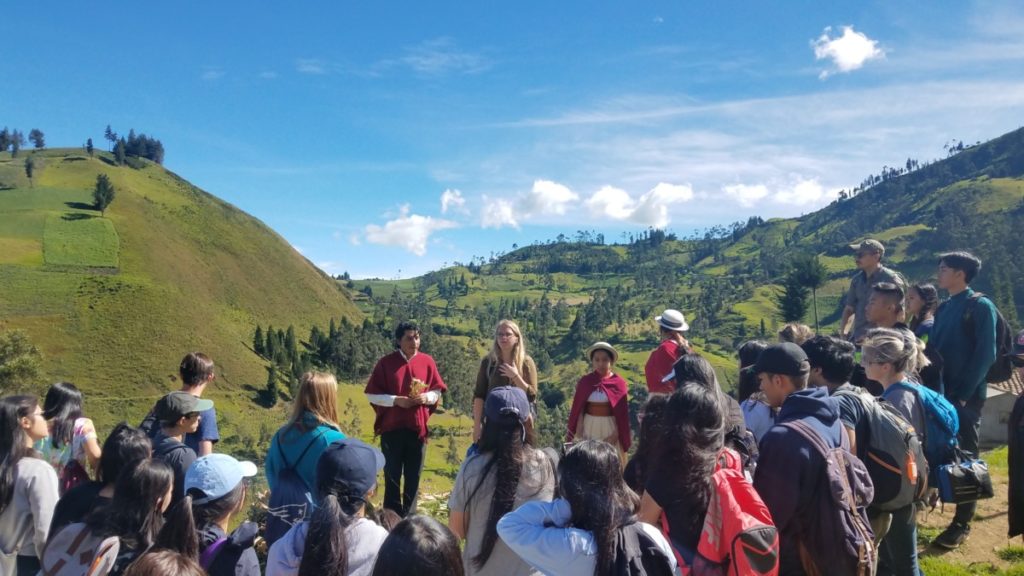
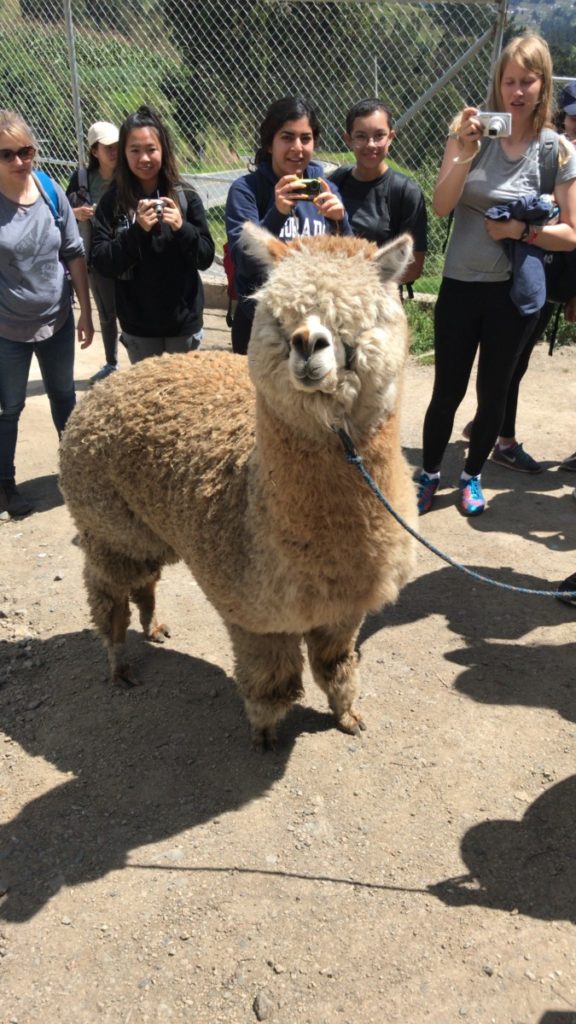
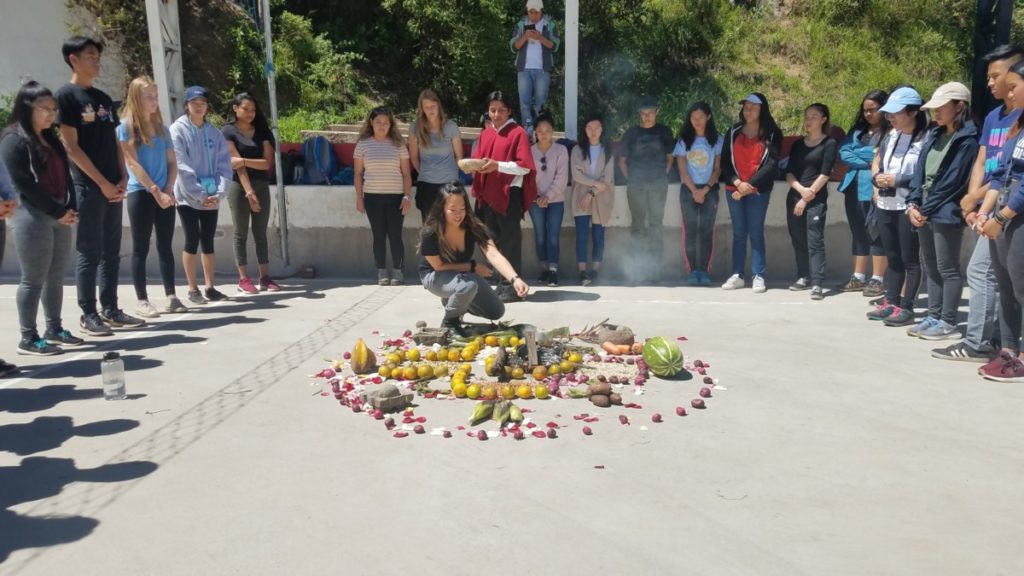
A Prayer for Our Hopes

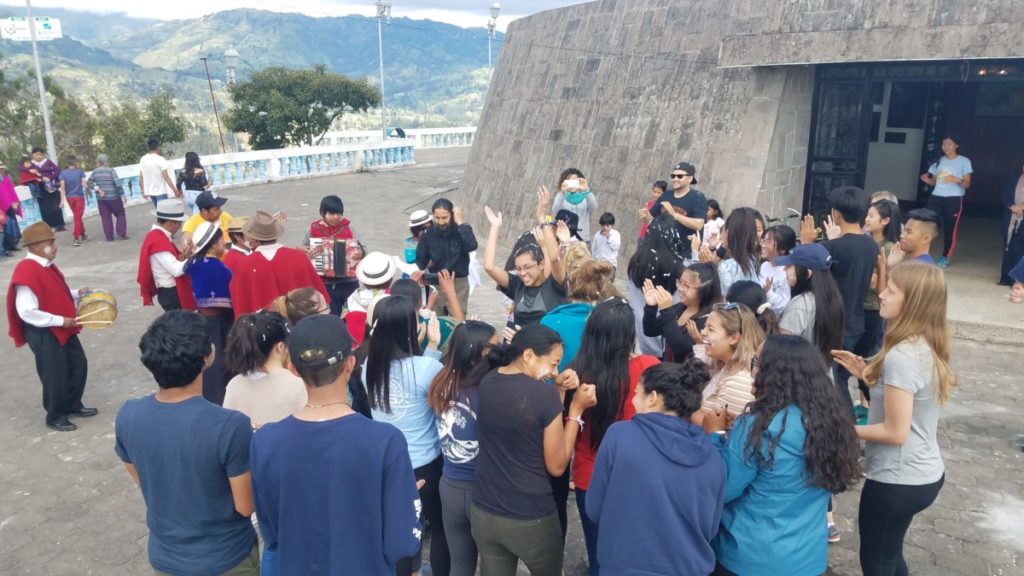
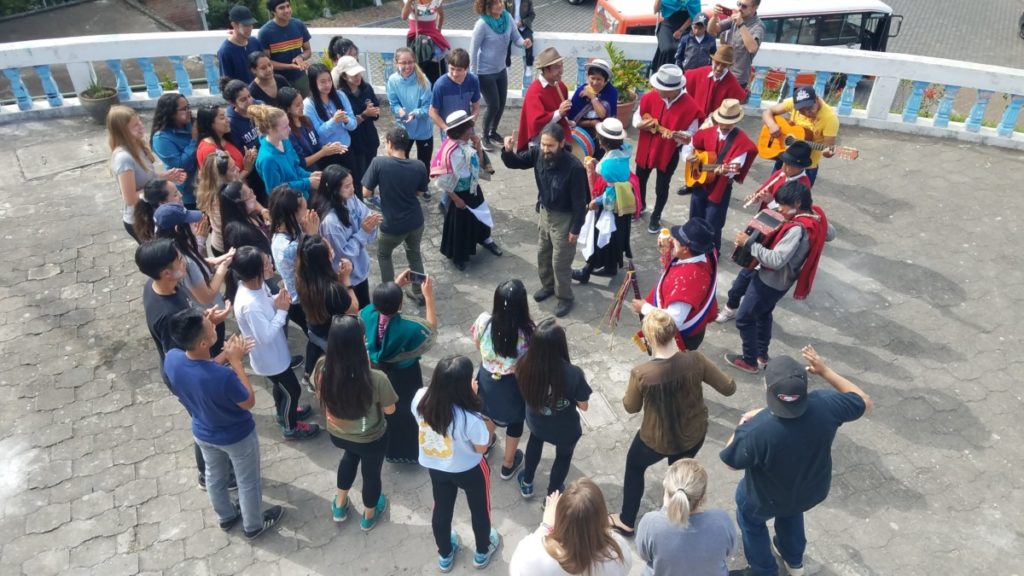
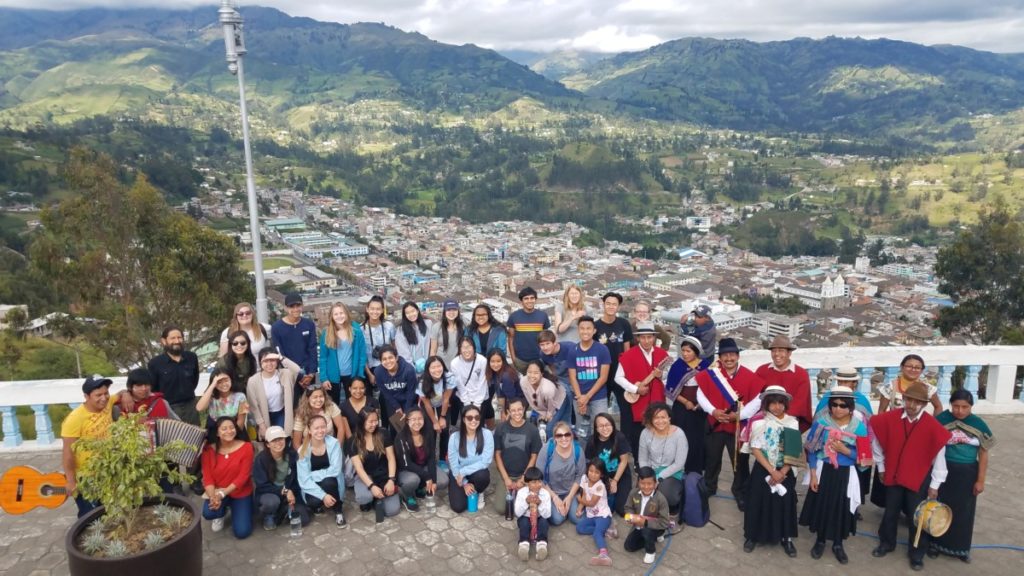

Hey Vi!!!
Dang, first Lider del Dia!!!! I was too haha :,))
It seems you guys have met some awesome people so far and the pictures are super nice!!!! The guitar museum and alpaca are super cool!!! Your delegation seems to be full of cool people (it’s ok Jeremy I feel you on the awkwardness LOL). Tell the other EV Glimpsers that I’m proud of em and I can’t wait too see what else you guys do :)))
<3 -TK
Makes me want to visit one day!
Miss you Lo! ?
Wow, what an awesome experience & exposure you’re getting there Lauryn!
We miss you dearly & are praying for you daily ?
Alexia, we are so proud of you for taking this adventure, exploring the world, setting the stage for your sisters and family!!
Thank you everyone for all the updates! They help more than you’ll ever know!!
Keep changing lives!!
We love and miss you Alexia!
-Mom, Sarah, Dad, Julia, and Olivia (Honey and Dexter miss you too!!)
Hi Carter! We are home from our trip and found this URL. Yay! Looks like you are doing tons of stuff and surviving the altitude. You are a gem. Miss you tons!
Hi Lauryn nunna,
I hope you’re having a good time. I miss you. Stay safe.
Tim
Beautiful! The discussions, the explorations, the people, the country! So loving vicariously joining you on your adventure.
Can’t wait to hear the stories! XO G! ❤️Mom
I can smell the crisp air just looking at the photos. Eunice, we already miss you 🙂 Hope everything is going well for you ~
Are those alpacas??? They look so fluffy! We are so happy for you to have such an amazing experience and so proud of you Lauryn!!